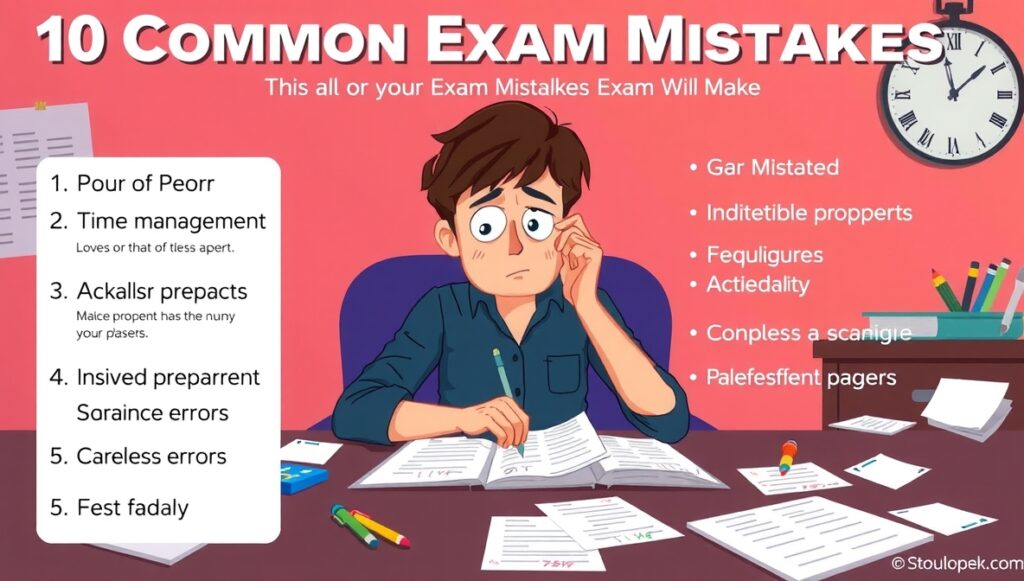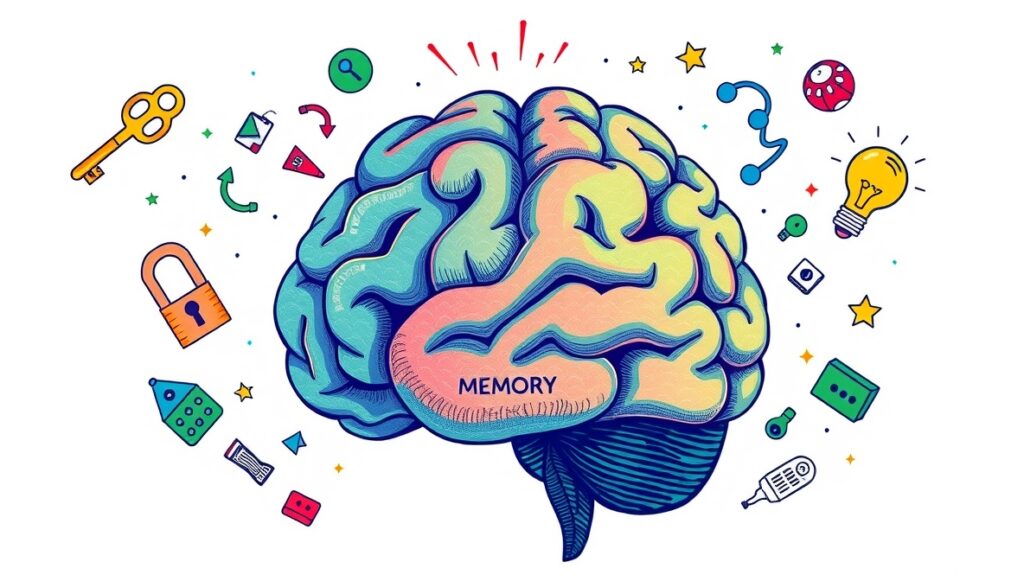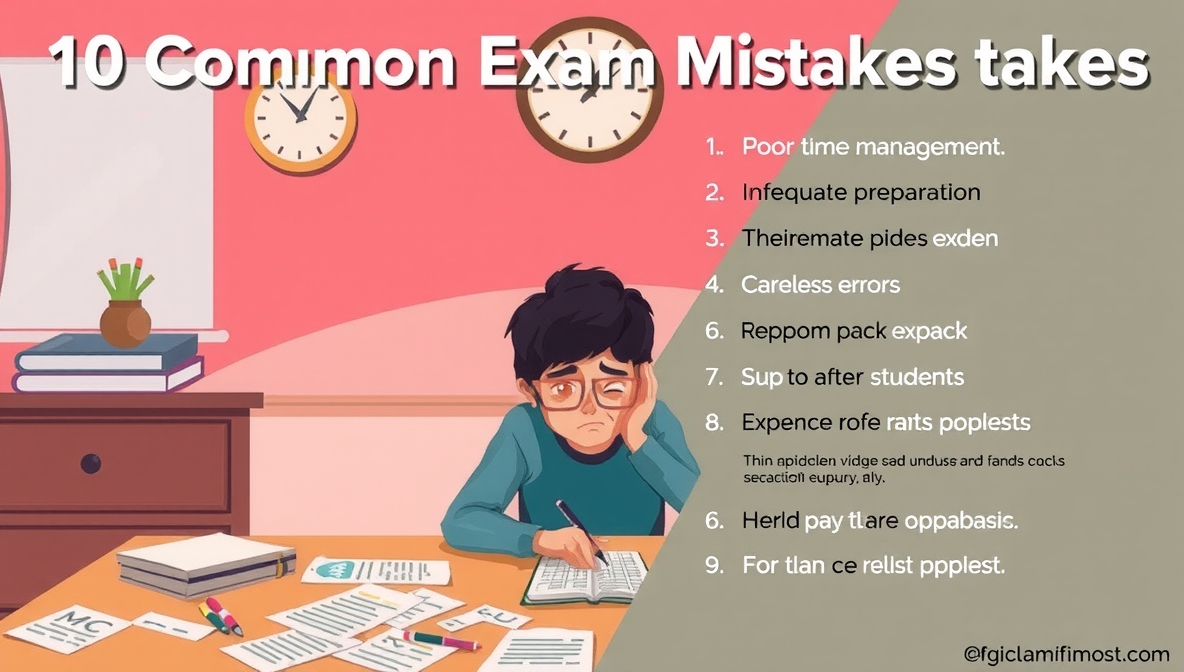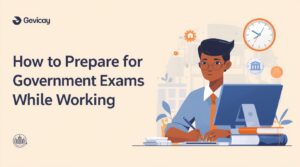Exams can be nerve-wracking experiences that test not just your knowledge, but also your ability to perform under pressure. Even well-prepared students sometimes find themselves making avoidable mistakes that cost them valuable points and grades. Understanding these common pitfalls and learning how to sidestep them can make the difference between academic success and disappointment.

Whether you’re a high school student preparing for final exams or a college student facing comprehensive tests, recognizing these frequent errors and implementing strategies to avoid them will significantly improve your exam performance. Let’s explore the ten most common mistakes students make during exams and discover practical solutions to overcome each one.
1. Poor Time Management
One of the most devastating mistakes students make is mismanaging their time during exams. This typically manifests in two ways: spending too much time on difficult questions early in the exam, or failing to allocate appropriate time for different sections based on their point values.
Students often get stuck on challenging questions at the beginning of an exam, spending 20-30 minutes on a single problem while leaving insufficient time for questions they could easily answer later. This perfectionist approach can lead to panic when they realize time is running out, causing them to rush through the remaining questions or leave them incomplete entirely.
How to avoid this mistake:
Before starting any exam, take a few minutes to survey the entire test. Note the total number of questions, their point values, and the time limit. Create a rough time budget, allocating more time to high-value questions and less to those worth fewer points. For example, if you have a 2-hour exam with 100 possible points, aim to spend about 1.2 minutes per point.
Set mental checkpoints throughout the exam. If it’s a 2-hour test, check your progress at the 30-minute, 60-minute, and 90-minute marks. If you’re behind schedule, move on from difficult questions and return to them if time permits. Remember, it’s better to answer all questions adequately than to perfect half the exam and leave the rest blank.
Consider wearing a watch or using the exam room clock to monitor your progress. Many students rely solely on feeling to gauge time passage, which is notoriously unreliable during stressful situations.
2. Not Reading Instructions Carefully
In the rush to begin answering questions, many students skim over or completely ignore detailed instructions. This oversight can be costly when exams have specific formatting requirements, ask for particular types of responses, or contain special directions for certain sections.
Common instruction-related errors include answering all questions when only a subset is required, providing short answers when detailed explanations are needed, or missing important information about how to mark answers on bubble sheets. Some students also fail to notice when questions have multiple parts or when certain materials are allowed or prohibited.
How to avoid this mistake:
Develop a habit of reading all instructions twice before beginning any exam. Use a highlighter or pen to mark key instruction words like “choose three of the following five questions” or “show all work for full credit.” Pay particular attention to any formatting requirements, such as writing in pen versus pencil, or specific ways to indicate your final answer.
For standardized tests, familiarize yourself with the answer sheet format beforehand. Practice filling in bubbles completely and understand the consequences of marking multiple answers for a single question. If you’re unsure about any instruction, don’t hesitate to ask the proctor for clarification before the exam begins.
Create a mental checklist of instruction-related items to verify: Are there materials I can or cannot use? How should I format my answers? Are there specific sections I must complete? Taking two extra minutes to understand instructions can save you from costly mistakes later.
3. Inadequate Preparation and Last-Minute Cramming
Perhaps the most predictable mistake students make is insufficient preparation, often followed by desperate last-minute cramming sessions. This approach typically involves minimal studying throughout the semester, then attempting to learn weeks or months of material in the few days before an exam.
Cramming creates several problems beyond simple lack of knowledge. It leads to poor sleep before exams, increased anxiety levels, and shallow understanding of concepts that makes it difficult to apply knowledge to unfamiliar problems. Students who cram often confuse similar concepts or forget information quickly after the exam.
How to avoid this mistake:
Implement a distributed study schedule that begins weeks before your exam. Break down the material into manageable chunks and review a small portion each day rather than attempting to absorb everything at once. This spaced repetition approach significantly improves long-term retention and understanding.
Create a study calendar that works backward from your exam date. If you have four weeks to prepare, dedicate the first two weeks to reviewing notes and readings, the third week to active practice with problems or essay writing, and the final week to intensive review and mock testing.
Focus on understanding concepts rather than memorizing facts. When you truly understand underlying principles, you can apply them to new situations even if you don’t remember every specific detail. Practice explaining concepts in your own words, and seek help from instructors or study groups when you encounter difficult material.
Maintain regular sleep schedules and avoid all-night study sessions, especially in the days leading up to your exam. Your brain consolidates information during sleep, making adequate rest crucial for both learning and exam performance.
4. Failing to Show Work or Provide Explanations
Many students, particularly in mathematics and science courses, lose significant points by failing to show their work or provide adequate explanations for their reasoning. Even when they arrive at correct answers, they may receive only partial credit because instructors cannot follow their problem-solving process.
This mistake often stems from time pressure or the assumption that only final answers matter. Students may also feel confident in their mental math abilities and skip steps they consider obvious. However, most instructors award points for correct methodology even when final answers are incorrect, making detailed work crucial for maximizing scores.
How to avoid this mistake:
Adopt a “show everything” mentality when taking exams. Write out each step of your problem-solving process, even for calculations you can do mentally. This approach not only helps you earn partial credit but also allows you to check your work more easily.
For mathematical problems, clearly label your variables, show all substitutions, and indicate your final answer distinctly. Use proper mathematical notation and include units where appropriate. If you make an error early in a multi-step problem, showing your work allows instructors to see that your subsequent steps were methodologically correct.
In essay or short-answer questions, use clear topic sentences and provide specific examples to support your points. Even if your overall argument has flaws, well-supported individual points often earn partial credit. Avoid vague statements and instead demonstrate your knowledge through specific details and examples.
Practice this approach during your regular homework and study sessions. The more accustomed you become to showing detailed work, the more natural it will feel during actual exams.
5. Misreading Questions or Making Careless Errors
Careless mistakes often result from reading questions too quickly or making assumptions about what questions are asking. Students might solve for the wrong variable, miss negative signs, or answer a different question than what was actually posed. These errors are particularly frustrating because they typically involve knowledge the student possesses but fails to apply correctly.
Common careless errors include mathematical sign mistakes, unit conversion errors, misidentifying what the question asks for, or making computational mistakes despite understanding the underlying concepts. These mistakes often increase when students feel time pressure or anxiety during exams.
How to avoid this mistake:
Slow down and read each question at least twice before beginning your answer. Circle or underline key words that indicate what the question is asking for, such as “explain,” “compare,” “calculate,” or “analyze.” Pay particular attention to qualifiers like “not,” “except,” or “most likely.”
For mathematical problems, double-check that you’re solving for the correct variable and that your final answer makes sense in the context of the problem. If a question asks for a rate in miles per hour and your answer is 500,000, pause to reconsider your calculation.
Develop a systematic approach to checking your work. If time permits, re-read questions and verify that your answers actually address what was asked. For calculations, work backward from your answer or use estimation to confirm that your results are reasonable.
Practice active reading techniques during your regular study sessions. The more comfortable you become with carefully analyzing questions, the less likely you are to misread them under exam pressure.
6. Getting Stuck on Difficult Questions
Many students encounter a challenging question early in an exam and become fixated on solving it, spending excessive time and mental energy on a single problem. This tunnel vision prevents them from moving on to questions they could answer easily, ultimately reducing their overall score.

This mistake often stems from perfectionist tendencies or the belief that they should be able to solve every problem immediately. Students may feel frustrated or defeated when they can’t quickly answer a question, leading them to persist beyond what’s strategically wise.
How to avoid this mistake:
Implement a “two-minute rule” for initial question assessment. If you can’t identify a clear path to solving a problem within two minutes, mark it and move on to the next question. This doesn’t mean giving up entirely, but rather prioritizing your time for maximum point acquisition.
Remember that exam questions are often arranged randomly, not in order of difficulty. A challenging question at the beginning doesn’t predict the difficulty of subsequent problems. You might find several easy questions later in the exam that you can answer quickly and confidently.
When you do return to difficult questions, approach them with fresh perspective. Sometimes taking a mental break allows your subconscious mind to work on the problem, leading to insights that weren’t apparent during your first attempt.
Practice letting go of perfection during your study sessions. Work through practice exams with time limits and force yourself to move on from difficult problems. This builds comfort with the strategy and reduces anxiety about leaving questions temporarily unanswered.
7. Neglecting to Review Answers
Even students who finish exams with time to spare often fail to review their answers systematically. They might glance over a few questions, but they rarely engage in thorough checking that could catch errors or improve incomplete responses.
This mistake frequently occurs because students feel mentally drained after completing an exam and want to leave as soon as possible. Others worry that reviewing their answers will only create doubt and lead them to change correct responses to incorrect ones.
How to avoid this mistake:
Plan your time to include a 10-15 minute review period at the end of your exam. This should be part of your initial time budget, not an afterthought if time remains. Having a designated review period helps you resist the urge to spend too long on individual questions.
During review, focus on systematic checking rather than random re-reading. Look for mathematical errors, incomplete sentences, or questions you may have skipped accidentally. Verify that you’ve answered what each question actually asks and that your responses are clearly marked on answer sheets.
For multiple-choice questions, trust your initial instincts unless you have a compelling reason to change an answer. Research shows that first instincts are correct more often than second-guesses, especially when the change is based on anxiety rather than new insight.
Use your review time strategically by prioritizing high-value questions or areas where you felt uncertain during your initial pass. Don’t try to reconsider every answer, but focus on those most likely to contain errors.
8. Poor Stress and Anxiety Management
Test anxiety affects many students and can significantly impair exam performance even when students are well-prepared. Physical symptoms like rapid heartbeat, sweating, or nausea can be distracting, while mental symptoms like racing thoughts or memory blanks can prevent students from accessing knowledge they actually possess.
Anxiety often creates a negative feedback loop during exams. Students notice their nervousness, which makes them more anxious, which further impairs their performance, leading to increased worry about their results. This cycle can be particularly devastating for students who have histories of test anxiety.
How to avoid this mistake:
Develop and practice anxiety management techniques well before your exams. Deep breathing exercises, progressive muscle relaxation, and positive self-talk can all help reduce anxiety levels. The key is practicing these techniques regularly so they become automatic responses during stressful situations.
Arrive at your exam location early enough to settle in without rushing, but not so early that you have excessive time to worry. Bring everything you need the night before and double-check your supplies to avoid last-minute panic about forgotten materials.
Reframe your internal dialogue about exams. Instead of thinking “I have to get an A or I’ll fail this class,” try “I’m prepared and will do my best with the knowledge I have.” Focus on the process of demonstrating your knowledge rather than on achieving specific outcomes.
If anxiety becomes overwhelming during an exam, take a brief mental break. Close your eyes, take several deep breaths, and remind yourself that you’re prepared. Sometimes a 30-second pause can reset your mental state and improve your performance for the remainder of the exam.
9. Ignoring Question Point Values
Students often treat all exam questions as equally important, spending the same amount of time on questions worth 2 points as those worth 20 points. This approach can lead to poor score optimization and missed opportunities to maximize their overall performance.

Some students become so focused on completing every question that they fail to notice point distributions entirely. Others see the point values but don’t adjust their time allocation or effort level accordingly. This mistake is particularly costly on exams where a few high-value questions comprise the majority of available points.
How to avoid this mistake:
At the beginning of each exam, quickly scan through all questions and note their point values. Create a mental or written priority list, focusing first on high-value questions where you can demonstrate strong knowledge. This doesn’t mean ignoring low-value questions, but rather ensuring you secure points where they’re most abundant.
Allocate your time proportionally to point values. If a question is worth 25% of the total exam points, it should receive roughly 25% of your time and effort. This mathematical approach helps prevent spending 30 minutes on a question worth 5 points while rushing through one worth 25 points.
For questions with multiple parts, note how points are distributed among the parts. Sometimes one section of a multi-part question is worth significantly more than others, indicating where you should focus your most detailed response.
When reviewing your answers, prioritize high-value questions for your most careful checking. If you only have time to review half your exam, make sure that half includes the questions worth the most points.
10. Lack of Strategic Guessing
On multiple-choice exams, many students either leave questions blank when they’re unsure or guess completely randomly without applying any strategic thinking. Both approaches typically result in lower scores than students could achieve with more thoughtful guessing strategies.
Some students have been taught never to guess, based on outdated advice about penalty scoring that rarely applies to modern exams. Others guess impulsively without taking time to eliminate obviously incorrect answers first. Both approaches represent missed opportunities to improve exam scores.
How to avoid this mistake:
First, understand your exam’s scoring system. Most modern exams don’t penalize wrong answers more than blank answers, making educated guessing advantageous. If you’re unsure about scoring, ask your instructor before the exam begins.
When you encounter a multiple-choice question you can’t answer completely, use process of elimination to improve your odds. Often you can identify one or two answers that are clearly incorrect, even if you’re not certain which of the remaining options is correct. Guessing between two possibilities gives you a 50% chance of success rather than the 25% chance of random guessing on a four-option question.
Look for clues within the exam itself. Sometimes information in one question can help you answer another, or the format of correct answers follows patterns you can recognize. Pay attention to answer length, specificity, and logical consistency with other parts of the exam.
For questions where you have partial knowledge, start with what you know and build toward the most likely answer. Even if you can’t solve a problem completely, you might be able to eliminate answers that don’t match your partial understanding.
Conclusion
Avoiding these common exam mistakes requires preparation, practice, and mindful execution during test-taking. The key is developing good habits during your regular study routine so they become automatic during high-stress exam situations. Remember that even small improvements in exam technique can lead to significant improvements in your grades over time.
Success on exams isn’t just about knowing the material—it’s about demonstrating your knowledge effectively under time pressure. By implementing these strategies and practicing them consistently, you’ll be better equipped to showcase your learning and achieve the academic results you’ve worked hard to earn.
Start incorporating these techniques into your next study session and exam preparation. With time and practice, avoiding these common mistakes will become second nature, allowing you to focus your mental energy on what matters most: demonstrating your knowledge and understanding of the subject matter.



